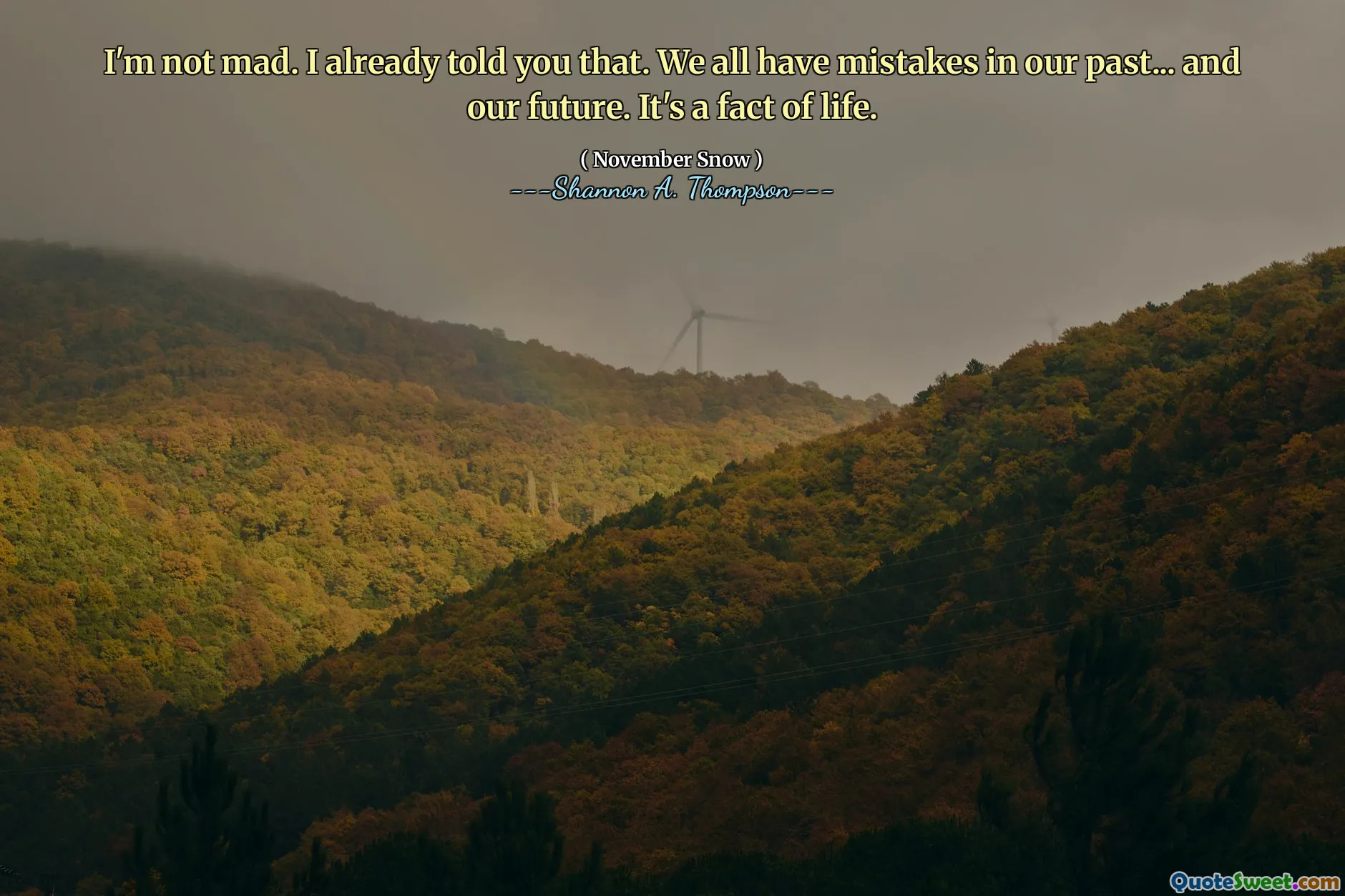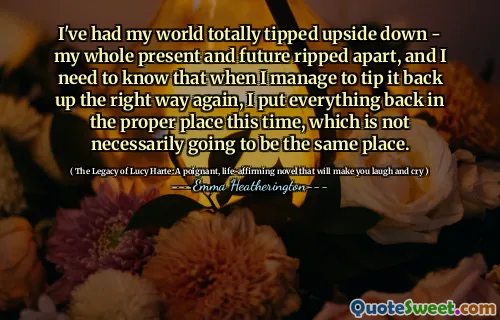
I'm not mad. I already told you that. We all have mistakes in our past... and our future. It's a fact of life.
This quote from ---Shannon A. Thompson---'s November Snow resonates deeply with the human experience of imperfection and acceptance. The speaker addresses a misunderstanding, asserting calmly, “I'm not mad,” which underscores a theme of communication and reassurance. What follows is an acknowledgment that mistakes are an inevitable part of both our past and future. This candid admission normalizes failure and underscores its inevitability as "a fact of life."
Mistakes are often seen as negative or shameful events we strive to avoid or hide. However, this quote invites us to shift our perspective, presenting mistakes not merely as failures but as intrinsic elements embedded in the human condition. It challenges the stigma that mistakes warrant anger or judgment and instead promotes understanding and acceptance – both towards others and ourselves.
By emphasizing that everyone has mistakes not only in their past but also in their future, the quote suggests that growth is a continuous process. It acknowledges that nobody reaches perfection, but the journey – including the errors along the way – is valuable and worth embracing. This viewpoint is particularly comforting and empowering in a society that often pushes for flawlessness and quick success.
Additionally, the speaker’s calm tone, "I'm not mad," indicates emotional maturity and controlled response. It models how one might approach accusations or conflicts with patience and empathy, rather than resentment. This encourages healthier interactions where people can admit faults without fear of punitive anger, fostering an environment of trust and mutual respect.
In a broader sense, this quote speaks to self-forgiveness and compassion as essentials for personal development. Accepting that mistakes will happen allows individuals to move forward without being weighed down by guilt or regret. It reminds readers that mistakes are universal and timeless – affecting the past and inevitable in the future – and that acknowledging them with honesty can lead to greater wisdom and resilience.
Overall, this poignant yet straightforward quote reinforces the message that life’s imperfections are not only unavoidable but necessary. Embracing this truth can comfort those wrestling with their errors and inspire a gentler, more patient approach toward oneself and others throughout life’s ongoing journey.






